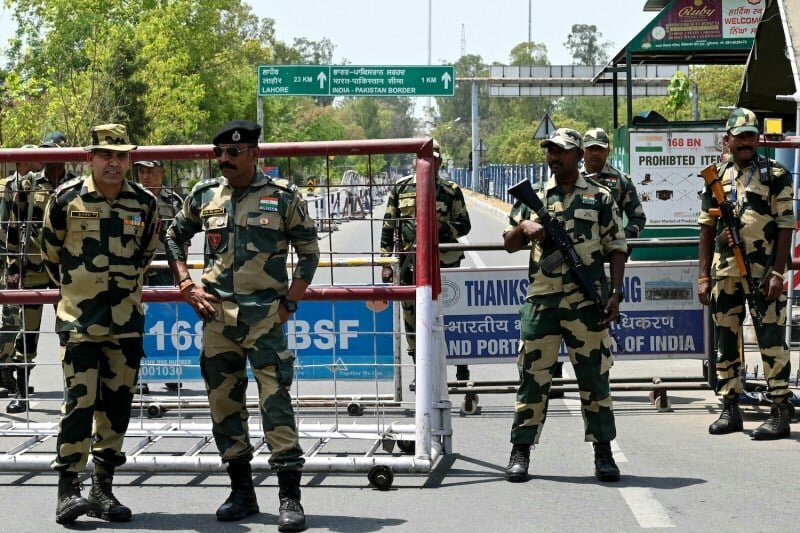Dialogue is the only way

A tragic incident of terrorism took place in Pahalgam, and after that, the world's most dangerous border, on both sides of which there are nuclear-powered states, stood staring into each other's eyes.
As soon as this incident happened, an accusation method was adopted from that moment on, which the world is familiar with. Therefore, instead of repeating these accusations or declaring the opinion of any party to be correct, let us examine why this situation occurs again and again and how it can be prevented.
The subcontinent remained a British colony for decades and for this reason it was the responsibility of Britain to settle all the issues between the two new countries that were emerging on the world map when it liberated British India, but this was not done deliberately and where many wounds of the colonial system were inflicted on the society of the subcontinent, they left issues like Kashmir without any final decision.
The subcontinent was already on fire in many places and Kashmir also started burning in the same way.
When the two newly emerged countries got into trouble, India took the matter to the United Nations Security Council and there, with the consent of both countries, it was decided that the Kashmiri people would be given the right to decide whether they wanted to go with Pakistan or India. Unfortunately, this Security Council resolution was never implemented and it is still on the agenda of the UN Security Council.
Due to its non-implementation, wars broke out between Pakistan and India, and it is a fact that wars themselves are problems, not solutions to problems.
In such a situation, a state of anxiety has begun to develop in Kashmir.
Today's world is not a world of armed movements. However, it is very difficult to prevent them. But still, individuals in Kashmir, deviating from the path of the central leadership of Kashmir, established armed organizations, and due to the actions of these armed organizations, tension and war of words between Pakistan and India became a norm. India took the position that Pakistan sends these armed men to Kashmir and that they are Pakistani people.
While Pakistan maintains that India has been conducting military operations in Kashmir for the past four decades, it has not been able to produce a single Pakistani person killed or arrested in any clash in Kashmir and present them before the media. And whoever has been killed while fighting the Indian army in Kashmir, from their graves to their rightful owners, all of them are in Kashmir.
If these people were Pakistanis, then someone from their graves to their rightful owners would have been in Pakistan.
Unfortunately, in this whole situation, the political process suffered immense damage, and it was not possible for the leaders of the All Parties Hurriyat Conference to do politics freely. Keeping this entire background in mind, the extremely unfortunate terrorist incident in Pahalgam can be understood. At present, the situation is that Pakistan is a non-permanent member of the United Nations Security Council and all the permanent and non-permanent members of the Council, including Pakistan, have condemned it and demanded that the perpetrators be brought to justice.
Pakistan has been insisting on the stated position since the tragic incident happened that if India has any evidence of Pakistan’s involvement, it should share it with Pakistan or share it with the international community. Pakistan has also offered full cooperation in any impartial investigation at the level of the Prime Minister. After this incident, India took the step of suspending the Indus Water Treaty, to which Pakistan reacted by saying that if the water agreement is unilaterally terminated and the water is stopped, it will be considered a declaration of war.
Water experts say it is not possible to stop the flow of water. They ask how will the water be stopped, or where will the water be stored? What canal system is there to use the stored water?
The answer to all of these is in the negative and therefore the possibility of stopping the water is unlikely. Similarly, the two countries cannot afford any major military conflict.
The reason for this is that India has more manpower than Pakistan, but it has to keep a reasonable part of it on the Line of Actual Control with China and it is not possible for India to withdraw its troops from the Line of Actual Control, while Pakistan does not need a single soldier on the border of its neighboring countries Iran and China and Afghanistan is not capable of posing any threat of military attack to Pakistan.
In the current situation, a very appropriate news has come that Iran has offered mediation to end this tension.
This offer is getting a lot of acceptance in the Pakistani media, and if India accepts it, then the end of this tension will be possible very quickly because dialogue is the only way to resolve matters. If the Security Council resolution on Kashmir had been respected, the nuclear subcontinent would not have stood face to face today.
Leave a Comment